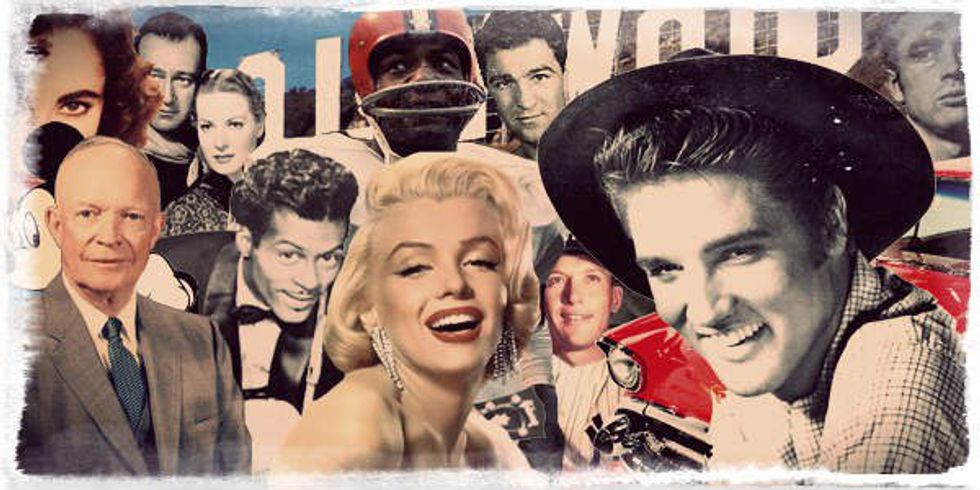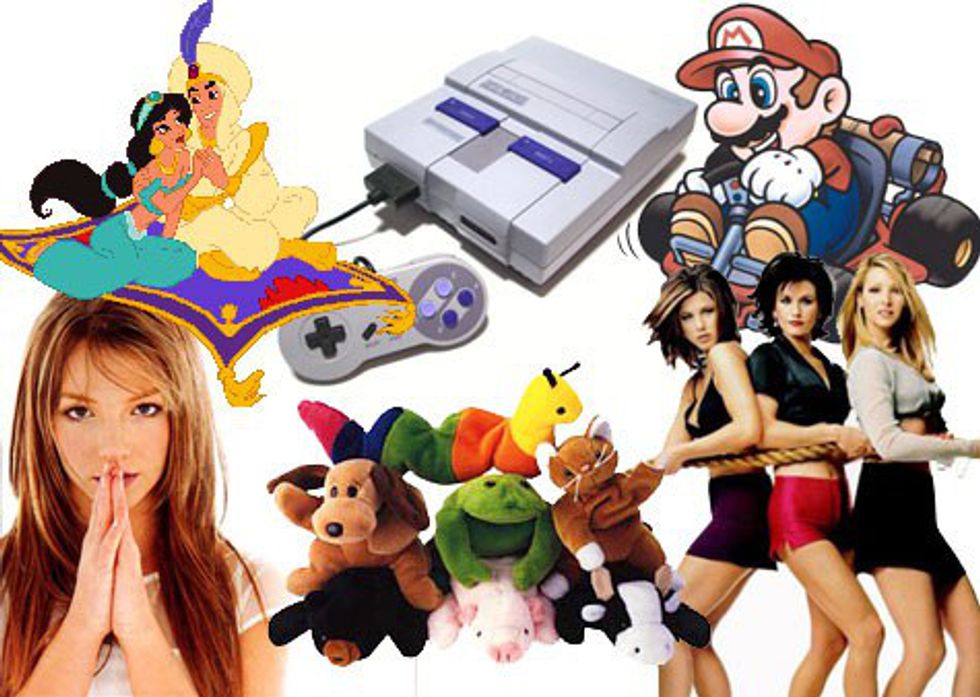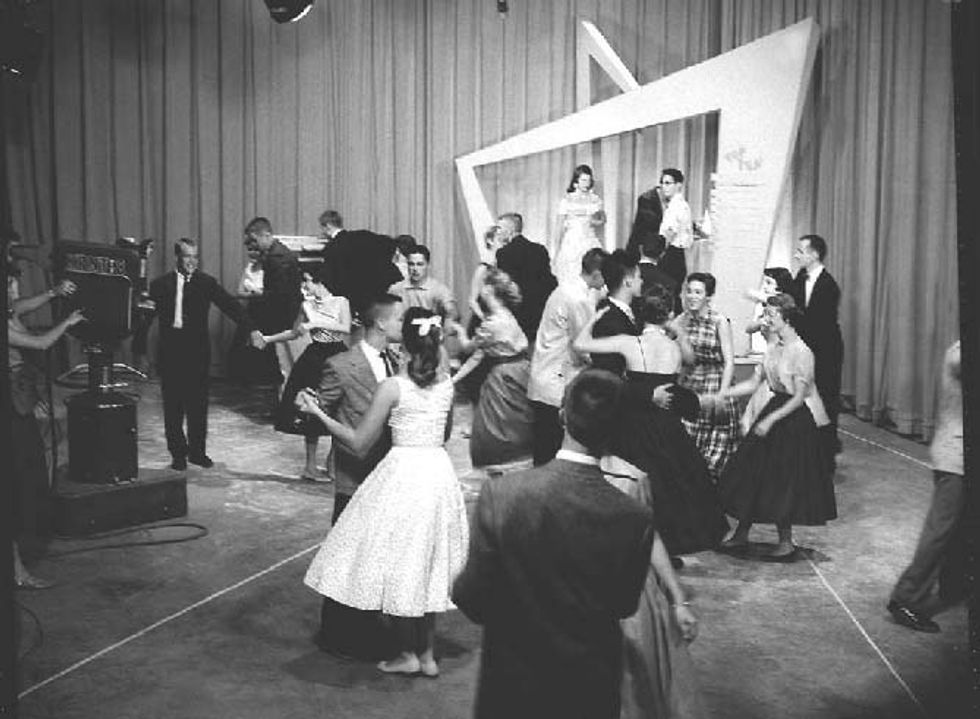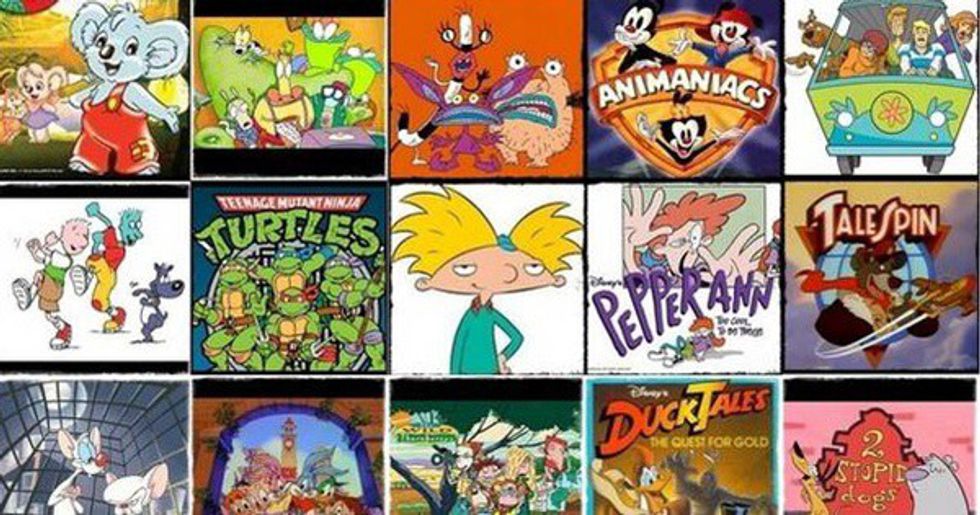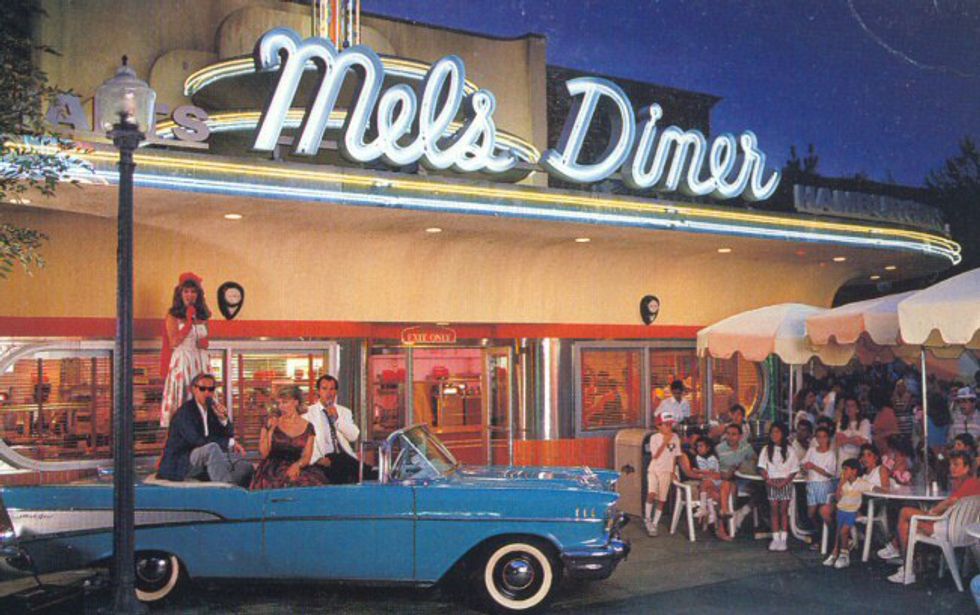Oh dang, time to meet the far extended family at Thanksgiving. It’s never a good time. There’s Great Uncle Joseph going off on his “make America great again” tangent. He sighs with tears in his eyes as Aunt Betty pours the gravy. For some unknown reason, it strikes him with nostalgia. After she’s done, the tangent begins. Maybe he’ll slam his fist on the table this year and yell at his niece.
“Why can’t we just go back to how things used to be?!” he shouts. “Like the 1950’s? Eisenhower’s years - those were the best days! The country is so screwed up now!”
Oh, Great Uncle Joseph. You roll your eyes. He’s so fake. To him, the 50s are the golden era. They’re what makes everything worth living for, with the hope we may just simmer back down into that kind of life. He leaves out a few things: racism, sexism, unequal pay, the constant threat of nuclear annihilation from another world superpower.
Now the 90s… that’s where it’s at. What a perfect time. Side-ways caps and overalls, big shirts and oversized jeans. The coffee shop snob and the college feminist, all sitting around and watch the big budget blockbusters that swept the Academy Awards for the entire decade. "Boy Meets World" and "Sister Sister" re-runs on Disney Channel? Yes please! Something about that time was better, wasn’t it?
If you believe that, you’re just like Great Uncle Joe. Tell me I’m wrong.
Our current generation seems to be obsessed with certain things, and that’s a great aspect to us. For one thing, unlike those older than us, we’re more willing to look deeper into our history. We like to find the flaws in what we were told. Millennials love proving our parents and grandparents wrong. Do we like to think we’re the enlightened generation? More than likely.
It’s no secret that the 50s was just a time when we put a blanket over ourselves, where individualism was both revered and reviled. American suburbia became a part of American culture. Underneath the swirling skirts and doo-wop boy bands, the slicked back hair and stay at home mothers were terrifying secrets: large swaths of the nation were still under segregation, and while white Americans were prospering, Americans of color were living in terrible conditions. The gay community was assaulted by its own government, with (now hilarious) school PSAs, such as:
Great Uncle Joseph is so full of it.
This generation is so eager to embrace the destruction of the 1950s myth. While 50's culture is gradually making it's way back into popular culture, do we still judge people with love affairs for that time? For example, I have an interest in famed actor James Dean, poster child for the 1950s. If I ever tell anyone that, nearly every time is this response:
“Wasn’t James Dean gay?”
Look, we don’t know and I personally don’t care. My interest is less in that and more of how he forever influenced American culture. That’s interesting to me. I find something interesting in that era, and someone must come by to tear it down. Scholarly interest has to be defended now. We put blankets of stereotypes and “one size fits all” on the entire decade: everyone was racist, everyone was homophobic, everyone was sexist. Yes, those were series problems of that decade. But humans beings are complex creatures. Hatred and kindness both exist in them. Complexities. We love to focus on the corruption of the era without stopping to realize many influencing factors.
The 1950s and the 1990s are not far apart. Both political parties love those decades, and a part of American conservatism theory is that we ought to aim back to purer days of society. Republicans have won elections on that promise for decades.
Here’s the thing: we look back upon the 90s as better time when things were simpler. American suburbia was still high and cultivated for, so much that the Clinton Administration made suburbination one of their long term goals.
I do not write this to try and seem like I’m on a pedestal. I remember the 90s pretty well myself and have a longing for it too. Do you want to know what I see? I see long neighborhood roads (not unlike we see in the ’99 Best Picture winner, "American Beauty") dotted with autumn trees. Kids ride their bikes home from school and play in the roads. Neighbors are friendly, schools have a certain protective element to them obviously gone today. I remember sparklers in front yards, boom boxes getting smaller and Christina Aguilera on the radio. To me it’s there, it’s real, and frankly, it’s longed for.
But I have to remember my brain is lying to me. Nostalgia is not a memory. What I remember of the 1950s, and what our great-grandparents remember isn’t real. Seriously. It's just something your brain fogged up. Yes, yes, your childhood memories are pretty much lies. Our brain is great at filtering out negative memories and strengthening the best ones. Therefore, what we remember as childhood is remembered as purity and perfection, not the hiding away of racism and corruption. That’s why Great Uncle Joseph is the way he is. He literally cannot remember a bad time from his childhood.
Neither can you, millennials. You’re better at it for sure but certainly of a fogged state. I am as well. Why do you think it’s so hard to believe that things were secretly screwed up when we were kids? We refuse to believe it because our minds cannot find evidence of such things.
Have you noticed the recent resurgence in Hollywood 90s franchises, or reboots of television shows? You're so nostalgic that companies are already finding ways to make money off of you. "Jurassic World" was cool and "Independence Day 2" will be even sweller, but don't think it's because they just thought it was a cool idea. They know they can make money off of your childhood.
For example, did you know the 90s led to a massive spike in divorce and personal savings for families dropped tremendously (this led to the economic disaster of ’08)? Do you remember how being gay was illegal in a huge portion of the states, and hate crimes were still a big problem we faced? What about the riots after the Rodney King verdict, or Columbine?
One thing I dislike about my generation is how attacking we are and how much we lack understanding. Have you ever tried to sit and talk with Great Uncle Joe about the good old days? Ever tried to understand why he thinks in such a way, rather than attack him for being ignorant? More than likely you have not. I don’t mean that to criticize you or… well, yes, I do. We need to stop looking at people who don’t think the same as us as “the enemy." The old world? Sure. Ignorant people? Sure. But let’s look at why they got that way and try to figure out how we cannot get there. Understanding - the simple but complex world - is the key to a prosperous future. I believe that and stand by it.
Every decade had it’s dirty little secrets, and every decade had the things that made it great. What if we celebrated those things that made it great - food, music, culture, all that jazz - and learned from the mistakes they made, rather than simply put an entire decade in a box? We can reach a stronger society if we decide to understand rather than blame.
Next Thanksgiving, try to remember that we all long for our childhood. We all want simpler days and we can only come at it from our own way of knowing. I cannot force someone to look at the world through my lens. It’s like tearing down a brick wall with a plastic spoon.
Understanding the past is key to understanding ourselves. We don’t have to run the victory lap every time, guys. It’s okay to come in second or third, or even last sometimes. But if we look at the winners and see how they won and also how they lost, we can better our game.
Try to understand. Try to learn. Try to know that right now we’re living in incredible times. I want to look at now with nostalgia, but I don’t want it to be fake brain fog. Clear it up. Embrace now, embrace the culture of now in a way the expresses your individualism. Understand that that is part of what makes you you, and eventually we’ll all be a version of Great Uncle Joesph. Maybe a little happier, though.




